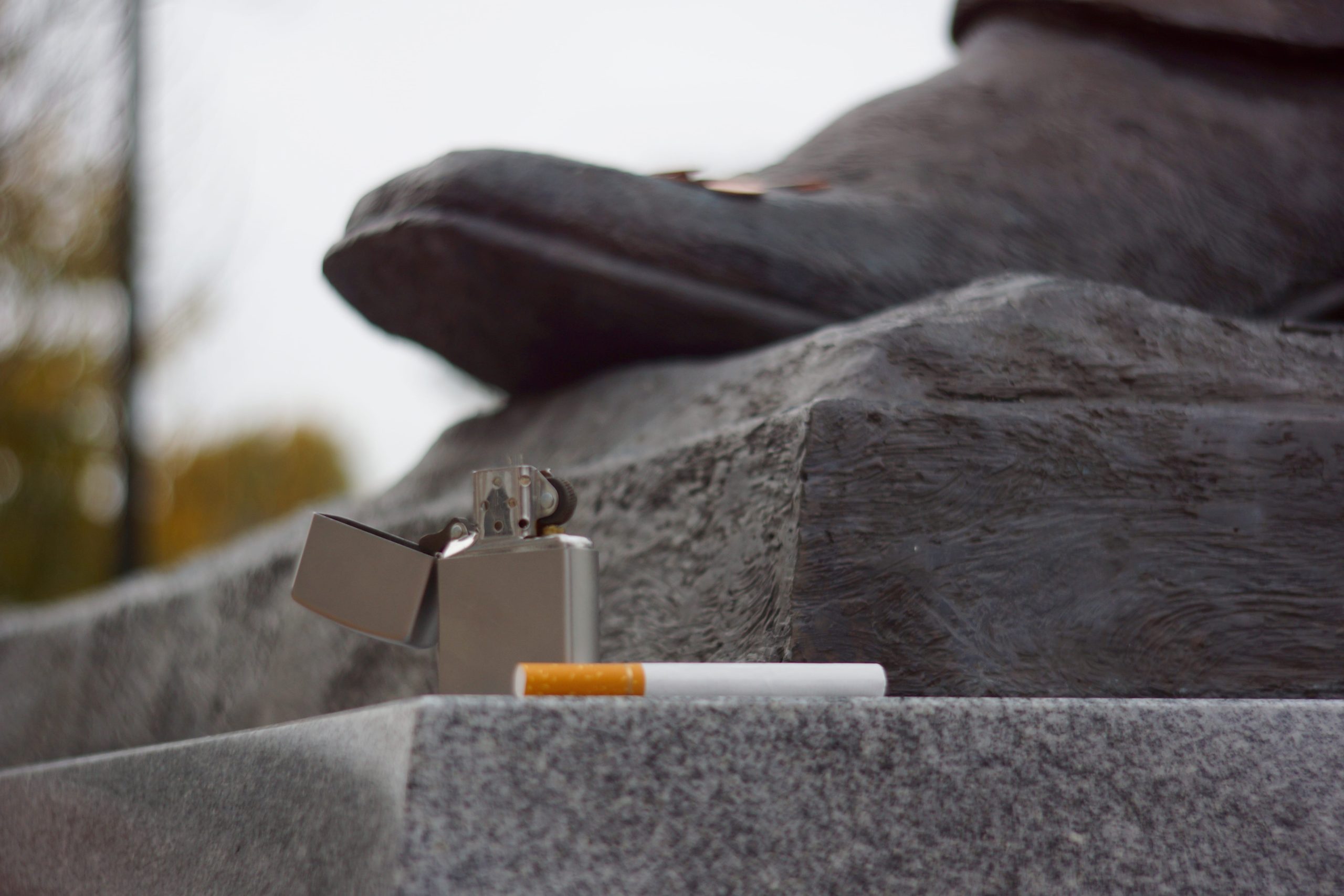BY SARAH HOLLOWAY – STAFF WRITER
Toward the end of October, the Student Government Association (SGA) held a Town Hall forum in Young 113 to discuss potential changes to the campus smoking policy. Currently, the policy states that smoking in buildings and near their entrances is prohibited.
The proposed revision is to ban smoking on the main walkway that spans the front of Olin, Young, Crounse, and across Walnut St. to the Campus Center. There would be designated smoking areas placed on the sides of the buildings that prevent non-smokers from being affected in this heavily trafficked area without seriously inconveniencing regular smokers.
While this amendment is both practical and manageable, the question lies in what motivated the decision to alter the current rule. It was stated at the forum that the proposed ban was not a result of student complaints to SGA about smokers; rather, it began as a suggestion by Parsons Health Clinic to make the entire campus smoke-free, a change many state schools in Kentucky have recently undergone. While being completely smoke-free is not conducive to Centre’s 98 percent residential campus, SGA agreed with Parsons that a revision should be considered.
SGA sent out a campus-wide survey to gauge student responses to a possible smoking ban, and of those who replied, the majority was in favor. However, only about 350 of 1,387 students took the survey, leaving the vast majority Centre’s population unaccounted for. Students in support of the revision made up 58 percent of survey-takers, meaning about 200 people. The remainder of the 350 came to 18 percent against the ban and 22 percent indifferent.
Centre’s smoker population is extremely small and consists of mostly staff members. With so few smokers actually taking advantage of the current policy, it is unlikely that smoking in the area of the proposed ban has posed any problems in the past.

“We have smokers on campus?” Assistant Professor of Politics and International Studies and Chair of Asian Studies Program Dina Badie asked when told about the ban. Many reacted similarly, either surprised by the notion of smokers on campus or that it was enough of a problem to merit a policy revision.
While smokers are not malicious and have no real objections to the revision, it is important to consider why the ban was ever suggested. Secondhand smoke is obviously a health concern, but there are not enough smokers on campus for this to cause real impact on the wellbeing of non-smokers. The only complaints concerning smoking on campus have been results of violations of the existing policy—for example, when people choose to smoke too close to the entrances of buildings, as Vice President and Dean of Student Life Randy Hays explained at the Town Hall forum.
With this in mind, it is difficult not to consider the possibility that the ban is more a concern with the campus aesthetic than actual health issues. An argument could be made that Centre is following the trend of other Kentucky colleges in their efforts to reduce smoking, but smoking is a much greater problem in larger schools and these bans have been implemented in response to specific problems that occurred in within the colleges.
It’s not news that Centre, like many institutions, is under a variety of pressures that affect decisions concerning policy and how the school is run. Trying to please alumni, impress visitors and prospective students, as well as taking into account the wants and needs of current students, can be a difficult task to undertake. Bearing in mind that there is not a student push to revise the policy or a significant health concern posed by the current smoking habits on campus, it is important to acknowledge the ban may be a result of outside pressures presenting the idea to SGA, which would explain why it is being made such a priority.
This is not to say that the ban is not a positive thing for Centre’s campus; there is no real negative side to the revision to merit pushback from students. It is simply necessary to present the proposal to students with a more holistic reasoning for a revision than health concerns and following the lead of other colleges that have fundamentally different cultures than Centre.
The fact that the solution of stricter reinforcement of the current smoking policy—which would eradicate the source of any existing complaints concerning smoking thus far—was not proposed as an alternative to a complete revision indicates that there is more to the ban than simply pleasing the student body. This does not mean the ban should not be implemented; rather, this should simply be made clear when being presented to those who will be affected by this revision.

